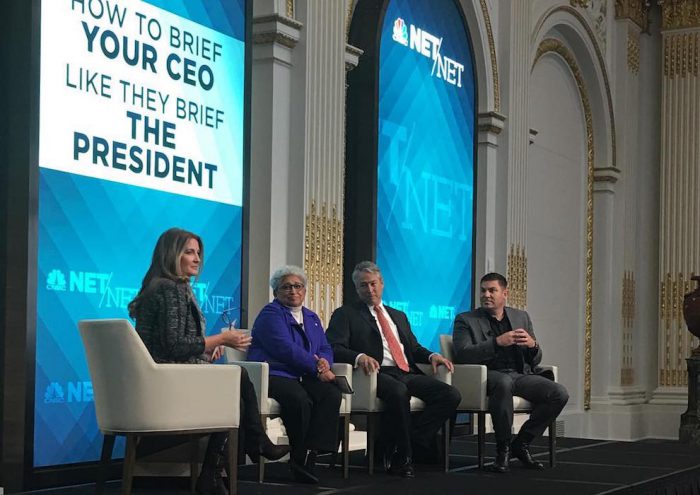
In the nine years she spent working for CNN — first as an executive producer and then as a national security and intelligence correspondent — Suzanne Kelly began thinking that there was a gap in the market for credible information about national security issues. TV news allotted just 30 to 45 seconds to cover most stories, and the people brought in to comment as “experts” might have little relevant or current experience.
“The quality of people you’re listening to on any given subject varies widely,” said Kelly, who is also the author of a 2009 book on Blackwater, Master of War. “Say you’re watching a Navy SEAL commenting on a mission that’s been leaked out. That person may have only served a year on a SEAL team and not really been an integral part of the community for years. Or a ‘former CIA officer’ who hasn’t worked for the agency for 10 years but is commenting as if they’re still being read in. It’s nearly impossible to know what you can believe and what you can’t.”
And so Kelly went out and started raising money to build a new kind of national security site that would include takes from actual experts, not talking heads. The Cipher Brief, which launched two years ago this August, covers national security issues in a number of formats — articles, podcasts, a weekday newsletter (modeled after the daily briefing the president receive, it prioritizes threats), conferences, even a weekly gossip column — and boasts a stable of experts who weigh in on big stories. During the terrorist attacks in Barcelona earlier this month, for instance, The Cipher Brief tapped James Clapper, former director of national intelligence, and John McLaughlin, former acting director of the CIA, to talk about the situation in Spain and how European intelligence agencies might be able to work with each other in the aftermath. (A few other names you might recognize in its network: Michael Hayden, Stanley McChrystal, Michael Chertoff, and Saxby Chambliss. The Cipher Brief is also home to legendary national security reporter Walter Pincus, who writes a regular column.)
“Imagine a newsroom where half of the room is analysts and half is reporters. You combine what each of them is so good at doing and deliver that every day to the reader. That’s what The Cipher Brief is,” Kelly said. The D.C.–based site has 20 full-time employees, 75 experts and growing, and hundreds of global contributors.
“We’ve seen journalism models in the past where, if you tell people what they want to hear, the cash rolls in,” Kelly said. “That’s definitely not where we’re coming from.” The site strives to strip politics out of the conversation. “We’re really targeting our product toward a readership that wants to know what they need to know when it comes to keeping their company safe in cyber, or what they need to do to keep their family safe from terrorism when they’re traveling overseas.” (In that way, the site is different from War on the Rocks, which is more aimed at a military audience.)That’s not to say that recent political events haven’t made The Cipher Brief’s mission feel a little more urgent. “The election of Donald Trump put everything on steroids a little bit,” Kelly said. “The rest of the world is desperately seeking information on what the tweets mean, what the statements mean, what the policy initiatives mean.” The Cipher Brief’s main audiences include people who work in government — the White House, FBI, Pentagon, and intelligence community — and, increasingly, people who work in the private sector. About a quarter of the visitors to the website each month are international.
The Cipher Brief raised a couple million dollars of VC money to launch, but two years in, it’s diversifying its business model. Currently, the site is entirely free to read and advertising-supported. This fall, The Cipher Brief will launch a subscription model, giving readers a certain number of articles to read for free before they’re asked to pay. The company is also planning a premium product — think Politico Pro — that will offer a higher-level daily brief and could cost a few thousand dollars a year. The Cipher Brief will partner with tech companies on that product, pulling in data from social media and the dark web to provide a fuller and more detailed matrix of the day’s national security threats.
“I don’t think we have a direct competitor today,” Kelly said. “I hope we do in the future — it keeps the market healthy. But I wouldn’t point to any company today that wouldn’t have some advantage in collaborating with The Cipher Brief. That’s a cool position to be in.”